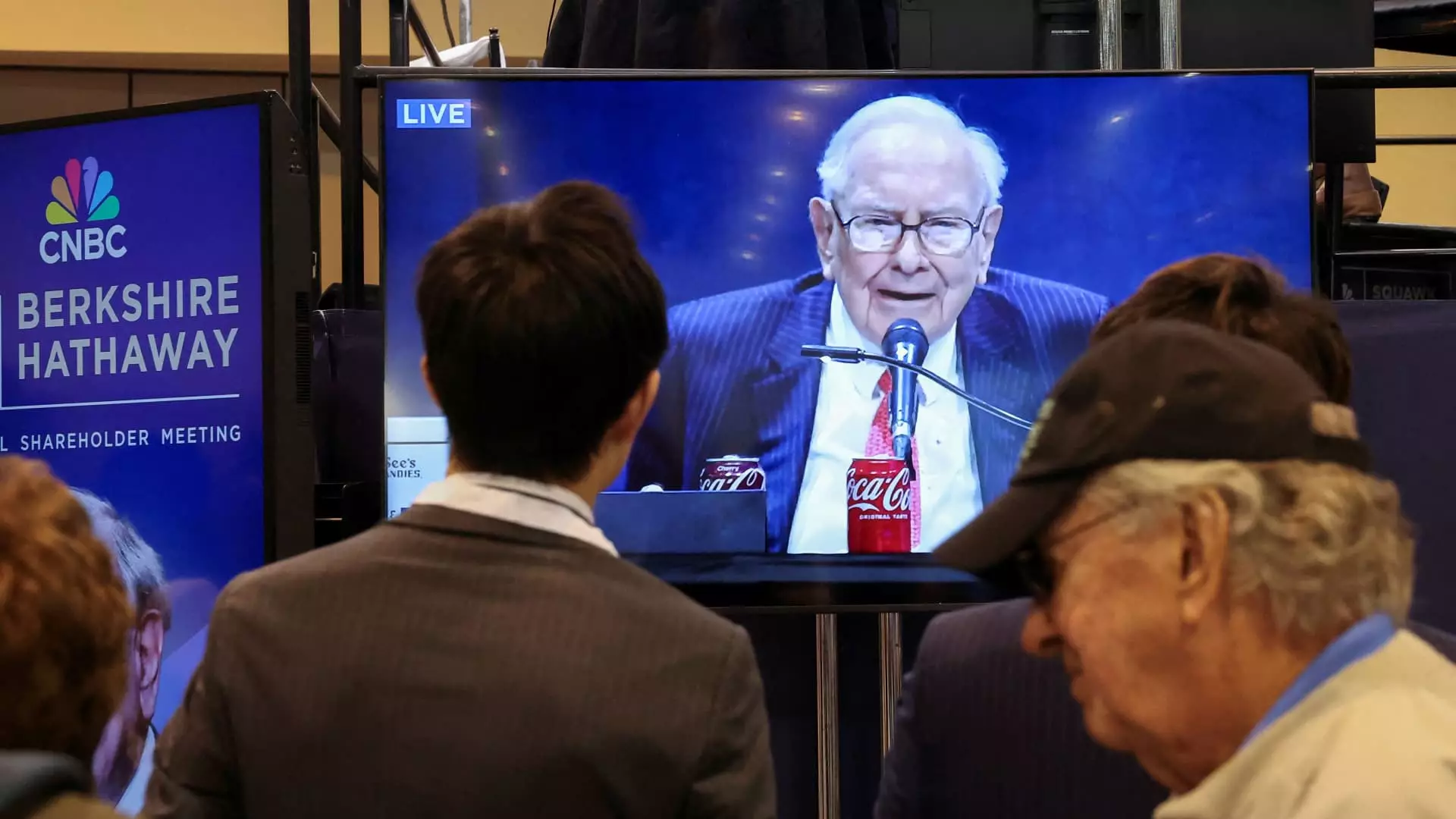Warren Buffett’s recent announcement of stepping down as CEO of Berkshire Hathaway marks a pivotal moment in the financial giant’s storied history. After an extraordinary 60-year tenure, shareholders are now forced to face the reality that the enduring face of the company is shifting to Greg Abel, the current vice chairman of non-insurance operations. This transition is laden with emotional weight and financial consequences, as the legacy of Buffett is built not just on investments, but also on the trust and faith he instilled in a loyal shareholder base. For many, this moment signifies not just a change of leadership, but an era that may well define the future trajectory of the conglomerate, which has become a towering figure in global finance.
The Aftermath of an Announcement
Despite the somewhat surprising nature of the announcement during the annual meeting in Omaha, investors greeted it with a mixed bag of sentiments. As Buffett’s previous decisions have created seismic shifts in the market, the subsequent decrease in Class B shares by 2.9% during premarket trading reflects a cautious optimism entwined with concern. The reality is that even the most stable companies can face turbulence at the dawn of new leadership, and the decline in share values post-announcement nearly serves as a litmus test of investor sentiment toward the transition. Abel’s ascension is universally recognized as a step towards continuity, as he will operate under the watchful eye of Buffett, who will remain as chairman. However, the worry looms: will the unique culture and strategic vision cultivated over decades endure beyond the charismatic charisma of its iconic founder?
Trusting in Abel’s Capability
While some may argue that significant changes should accompany leadership transitions, Abel assumes the helm at a time when the company is less dependent on the singular prowess of Buffett. With a diversified portfolio that incorporates insurance, retail, manufacturing, and beyond, the company has evolved significantly since Buffett first took the reins of the once-faltering textile mill. Analysts, including Brian Meredith from UBS, have signaled confidence in the company’s operational processes, predicting that the culture and strategic vision will largely remain unaffected under Abel’s leadership. This perspective lends itself to a reassuring narrative, suggesting that Buffett’s mentoring of Abel will facilitate a seamless continuity, thereby preserving the principles that have guided Berkshire Hathaway through both prosperous periods and significant market stress.
Buffett: The Eternal Mentor
One cannot undervalue the role of Buffett even as he steps back from daily operations. His commitment to remain as chairman allows him the opportunity to provide ongoing mentorship to Abel, guiding the ongoing mission of Berkshire with the wisdom gleaned from decades of experience. Shareholders should feel a degree of comfort knowing that even as a passive player, Buffett’s insights and strategic foresight will still permeate through the company. This dual-structure leadership—continuity alongside fresh perspectives—could act as a crucible for innovation while reassuring long-time investors that core values will remain intact.
The Wider Implications for Investors
As much as this transition feels like navigating uncharted waters, investors may find a silver lining through the robustness of Berkshire’s business model. Notably, the conglomerate reported a hefty decline in operating earnings, prompting speculation about its capacity to weather financial storms in the wake of climatic disasters like the Southern California wildfires that contributed to a $1.1 billion loss. While declines in earnings spark questions about operational efficiency and risk management, it’s critical to acknowledge that Berkshire’s resilient portfolio continues to outperform the S&P 500 by nearly 19% this year. Such resilience confirms that, even amid uncertainty, Berkshire remains a fortress of stability amidst the stock market’s cyclical volatility.
The Future of a Financial Titan
Ultimately, the crux of the matter lies in how effectively Berkshire Hathaway will navigate this leadership shift. As Abel takes up the mantle, the company may find itself in an invigorated position to embrace new avenues for growth while holding on to the foundational principles that propelled Buffett to legendary status. While there may be inevitable growing pains, both investors and analysts alike must keep in mind that transitions this monumental often lead to transformational growth, especially when heralded by a leader steeped in sound business acumen and strategic foresight. The journey ahead will define whether Berkshire Hathaway continues not just as a titan of finance, but as a beacon of learning for future generations.

